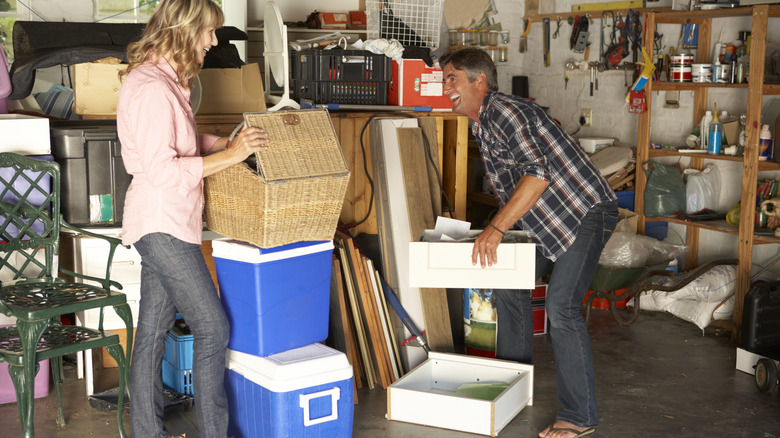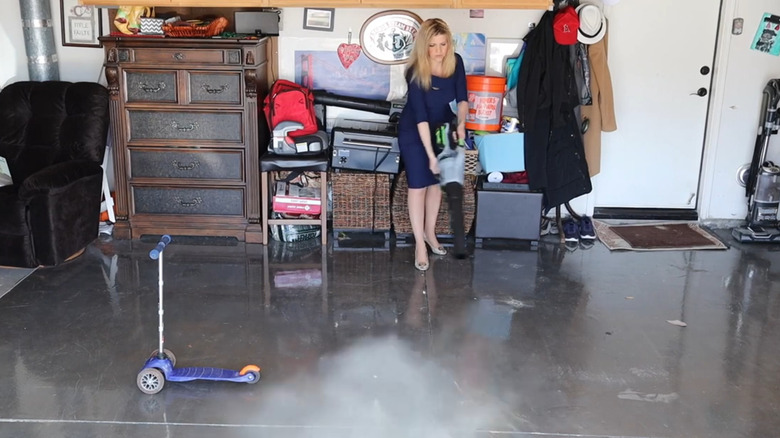The Handy Tool That Makes Cleaning Your Garage A Breeze
Sometimes, a cleaning hack sounds more like a threat, or at least the kind of last-resort thing an exasperated spouse might do while you're not looking. Many such "solutions" (burning down your garage and starting over, for example) are impractical, illegal, or otherwise inadvisable. But keep an open mind to this hack: cleaning your garage with a leaf blower. It's a natural approach to clearing away spider webs, sawdust, and the leaves that blew in while you were teaching your broken lawn mower curse words last fall. And it's a great strategy for cleaning around things too numerous to move, like useless things you bought on vacation and those 37 slightly bent badminton rackets. Alas, it will not blow away your son's sludge metal band.
A lot of YouTube videos tout this idea, and most have the cinematic quality of a Roomba cam. But DIYer Whitley Green really gets into it. He innovates, using his leaf blower to banish dust from his garage rafters. Eventually, his blower's battery dies, and he finishes up with a push broom, which is considerably less entertaining.
From such videos, we can glean key techniques. Wear protective gear like a dust mask, hearing protection, and safety glasses. Depending on the nature of your particular mess, you might also benefit from shin guards and a helmet. Clear up high before cleaning down low, and work from back to front so that the mess ends up outside where it belongs.
Dealing with unintended consequences
Leaf blowers are famously tools of discontent when it comes to good relations with your neighbors. They make a lot of noise and sometimes end up making a mess of adjacent lawns while you're "cleaning" yours. When you're "sweeping" out your garage, keep the detritus on your turf unless your neighbor happens to be a collector of vintage paint can labels, desiccated spiders, and empty nail boxes. Even in a garage, you're likely to be blowing a few things that you don't want to rake into a compost pile. How do you filter out the treasure from the trash and trash from the biodegradable dust, leaves, grass clippings, and the like?
You might be able to devise some kind of filter using hardware cloth or fishing net, but there's no reason to believe the good stuff will be of a certain size. You can try the "blow more softly to separate dust from missing plush Mickey Mouse" approach, but some light things have value, including (so far, at least) cash and your boat title. In the end, there's nothing for it but to sift through the sweepings for lost treasure. And remember not to see that stupid hat your kids bought for you at Disney World.

